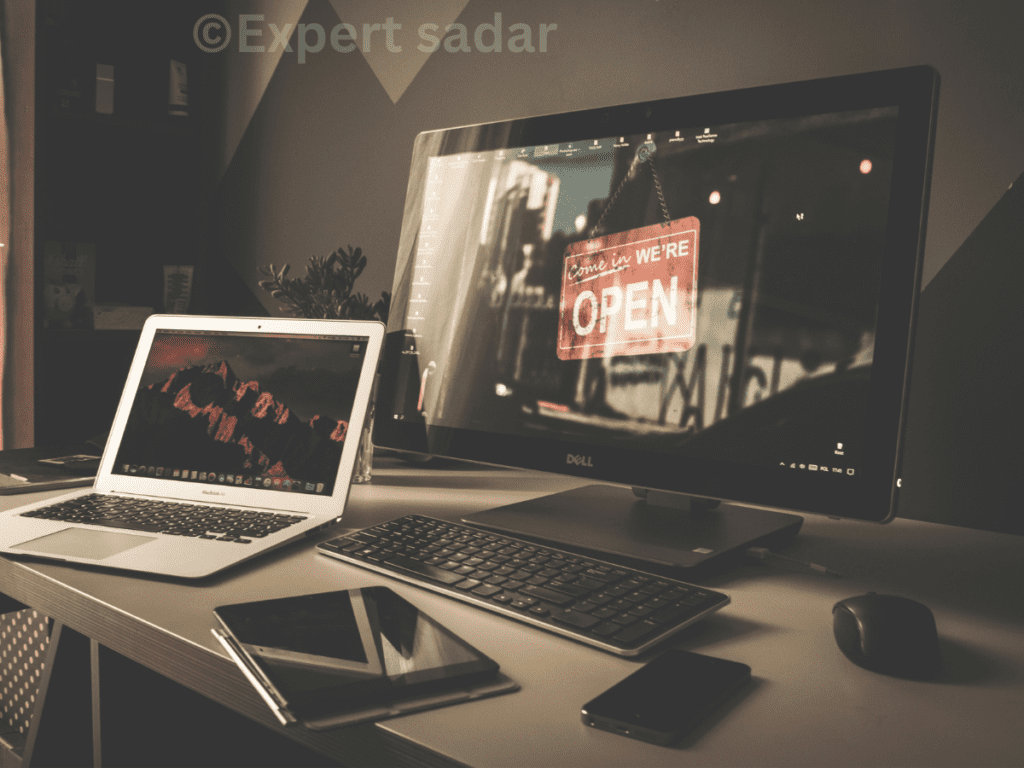WebSite speed and performance are key factors in determining the success of your site. At a time when consumers expect a fast and smooth online experience, a slow website can lead to frustration. Membership is low and can result in lost business. On the other hand, a website that is optimized for speed and performance will provide a good user experience. Drive more website traffic to improve search engine rankings and increase conversion rates. In this blog we explore the importance of website speed and performance. Learn how to optimize your website for the best results.
What is Website Speed and Performance?
Site speed and performance refers to your site’s load time and overall user experience. This includes things like page load time. Responsiveness of the site The uptime of the site and the ability to manage multiple users at the same time.
The Impact of Slow Website Speed on User Experience!
A slow website can greatly affect the user experience. And that can lead to lower engagement and lost business. Research has found that 40% of consumers will abandon a website that takes more than 3 seconds to load, and 79% of consumers who have a negative experience with the website will return. There are few opportunities to buy. Additionally, a slow website can lead to poor search engine rankings. Because search engines prefer fast and responsive websites.
The Benefits of a Fast and Optimized Website!
A fast, optimized website provides a better user experience and increases engagement, conversions and traffic. In addition to improving the user experience. A fast website can also improve your search engine rankings. This is because search engines prefer fast and responsive websites. A well-optimized website provides a smooth user experience across all devices. This increases exchange rates and income.
Factors that affect website speed and performance
There are many factors that affect website speed and performance. Including website design, web hosting, website content. Website Scripts and Plugins Website design involves using responsive design and clean code. This can significantly affect the speed and performance of your website. Web hosting is also important. This is because a slow hosting service can significantly slow down your website. Also, if your site is not optimized for the web, your site content such as images and videos will slow down. Finally, site scripts and plugins can slow down your site if not properly optimized.
How to measure website speed and performance?
There are many tools like uber suggest that can measure website speed and performance, including Google Page Speed Insights, GT metrix and Pingdom. These tools provide detailed information about website speed and performance. This includes page load time, number of requests and site uptime. Using these tools, you can identify areas of your website that need improvement. And take steps to improve your site’s speed and performance.
Importance of Responsive Website!
In today’s digital environment, it’s important to create a responsive website design that provides a smooth user experience across all devices. Responsive website design automatically adapts to the user’s screen size. It provides a good experience regardless of the device used. Responsive website design improves website speed and performance. Because it prevents fragmented mobile sites.
The role of web hosting in website speed and performance.
A slow hosting service can cause a website to load much more slowly, hence website hosting is essential to a website’s performance and speed. Selecting a hosting provider that offers your website enough resources and dependable, quick service is crucial. Selecting a hosting provider that offers your website regular backups, security, and support is also crucial.
Importance of Website Content Optimization!
Website content such as images and videos will be slow if your website is not optimized for the web. It is important to optimize website content to improve web performance by compressing images and videos. Use the appropriate file format. and reduces website file size. Additionally, it reduces the number of website scripts and plugins and also reduces the size of website files. Can improve website speed and performance
The Importance of Website Maintenance and Upgrades!
Website maintenance and updates are important to keep your website up-to-date and up-to-date. Regular site updates and security patches help prevent site lag and improve site performance. In addition, site speed and performance are constantly monitored and analyzed. And making changes to improve performance is critical to a site’s success.
Image optimization tips to improve website speed!
Images on the web can have a huge impact on the speed and performance of your website. Image optimization helps improve website speed and performance. This makes the user experience faster and more enjoyable. Some image enhancement techniques include:

Compression:
Compressing an image reduces its size while maintaining its quality. For this, programs like Adobe Photoshop may be utilized.
Correct file format:
Optimizing images for best web performance requires choosing the right file format. For example, JPEG files are ideal for photographs, and PNG files are ideal for graphics.
Reduce file size:
Resizing images to the correct size for your website can help reduce file size and increase site speed.
Installation is slow:
Only when necessary may photos be loaded thanks to lazy loading. It helps to improve the speed and performance of the site.
A picture of a troll:
By combining multiple images into one larger image. The quantity of queries sent to the server might be decreased. It makes the webpage load faster.
Alternative tags:
Adding meaningful alt tags to images can improve your website’s accessibility and help with SEO.
Responsive images:
Using responsive images ensures that images are optimized for different screen sizes. Boost mobile device performance and speed of websites
Reduce the use of images:
Using more images on a web page will decrease page load times. Minimizing the use of images and choosing high-quality, optimized images will improve your website’s speed and performance.
Effects of scripts and plugins on websites’ performance and speed:
Website plugins and scripts can have a significant impact on website speed and performance. Although plugins and scripts can add functionality to a website, they can slow down a website if it is not properly optimized or managed. Ways to minimize the impact of plugins and scripts on your site’s speed and performance:
1. Reduce how often you utilize scripts and plugins.
Use only the plugins and scripts that your website needs. It is preferable to have more scripts and plugins than less. It loads slowly on your website.
2. Regular updates.
Updating plugins and scripts can prevent compatibility issues and improve website performance.
3. Disable unused plugins and scripts.
Disabling unused plugins and scripts can improve website performance and reduce security risks.
4. Use optimized plugins and scripts.
Choose apps and scripts optimized for speed and performance.
Conclusion!
A website’s overall success, search engine optimization, and user experience are all greatly impacted by its speed and functionality. Website owners can enhance the speed and performance of their websites and give users a seamless and quick experience by optimizing graphics and controlling plugins and scripts. ite speed and performance can be significantly increased by using image optimization strategies including compression, alt tags, lazy loading, appropriate file format, and file size reduction. Website owners can lessen the influence of plugins and scripts on website speed and performance by using optimized plugins and scripts, keeping them up to date, and minimizing their usage.
Blog By:- ExpertSadar



